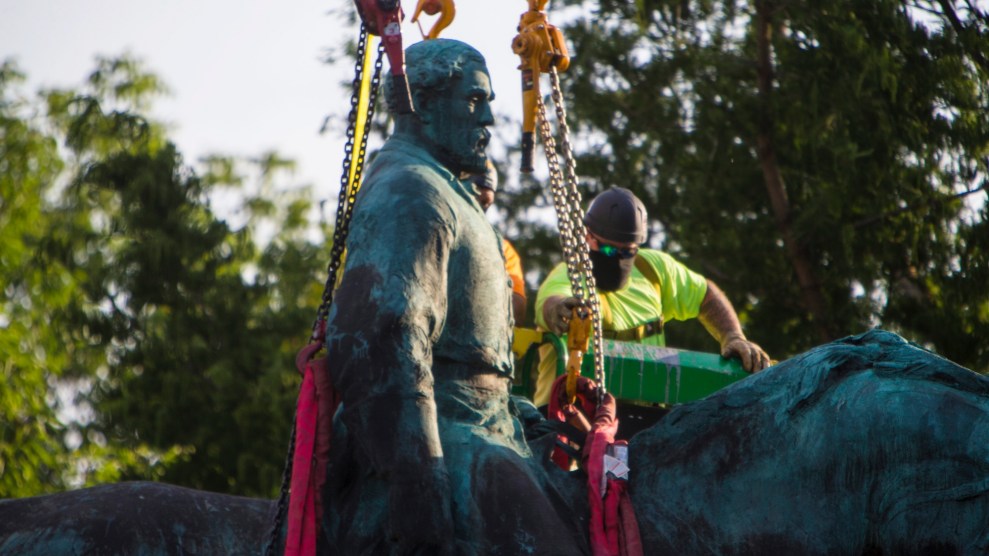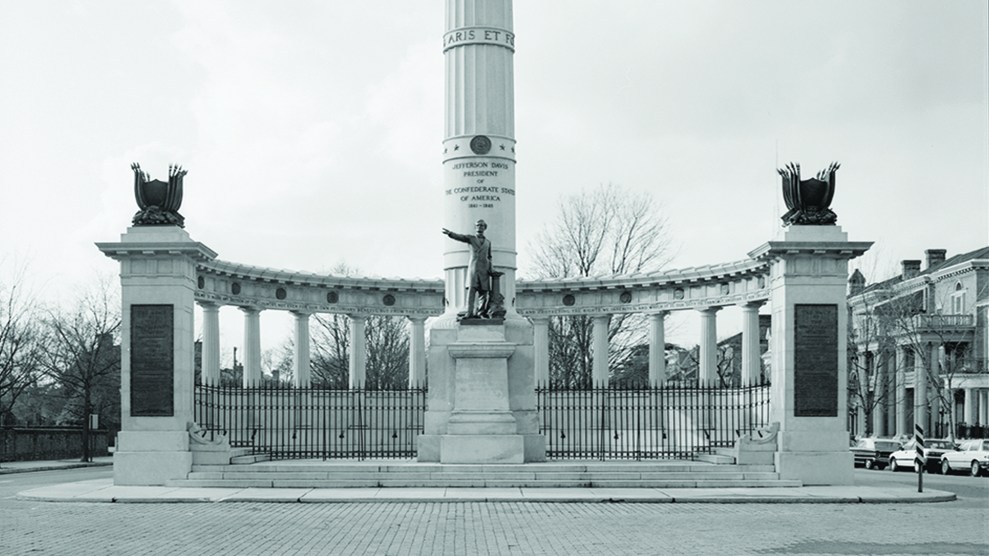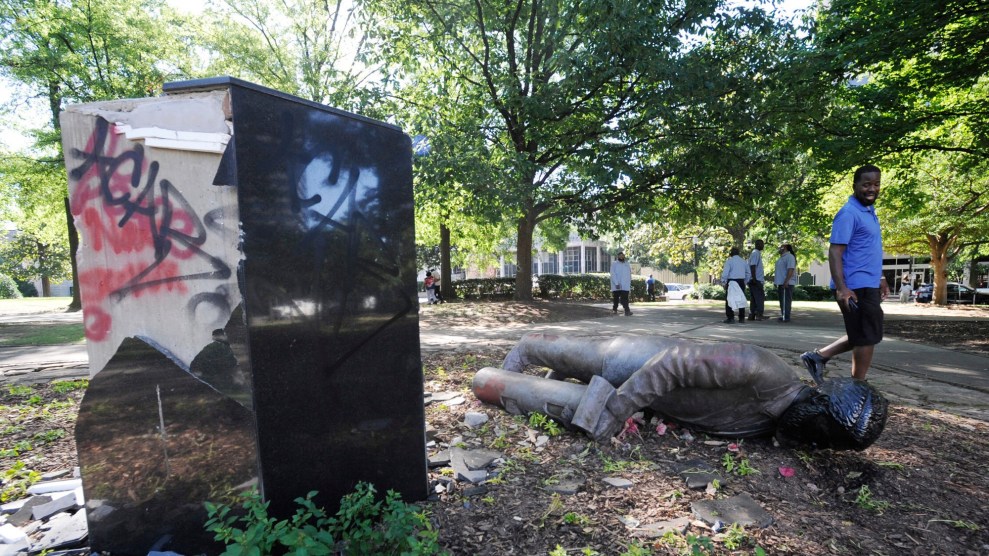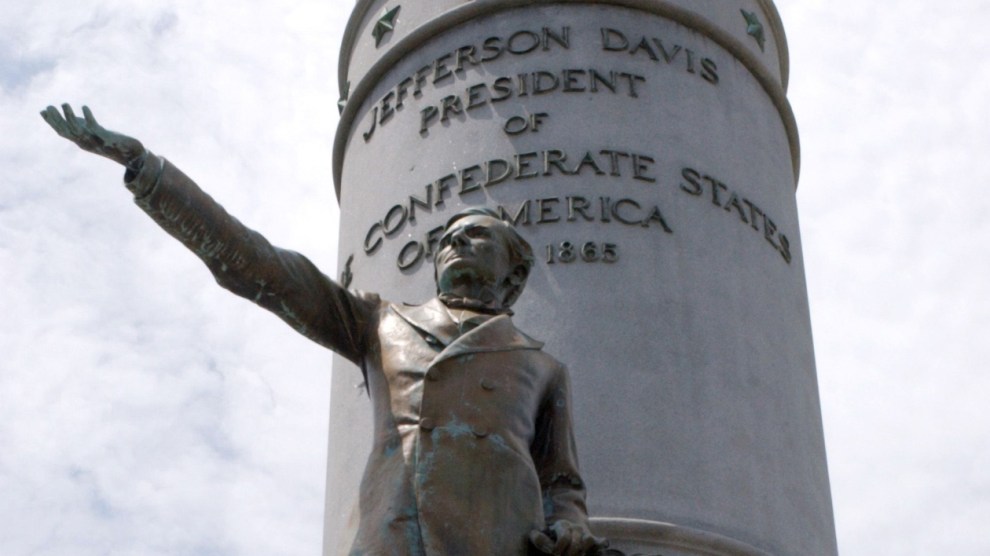
John C. Clark/AP
On Saturday morning, a statue of Confederate Gen. Robert E. Lee in Charlottesville, Virginia, which sparked a deadly white supremacist rally in 2017, was finally removed. New York Times columnist Jamelle Bouie captured the moment on Twitter.
City officials took action after an April ruling by Virginia’s Supreme Court authorizing its removal, along with another monument honoring Confederate Gen. Thomas “Stonewall” Jackson. The decision is part of a fractious and yearslong nationwide push to scrub Confederate monuments and honors from military bases, schools, and public squares. Nowhere was this conversation more resonant than in Charlottesville, where the City Council first voted in February 2017 to remove the Lee statute.
White supremacists mobilized in opposition to the move and in August of that year marched through Charlottesville chanting “Blood and soil!” and “Jews will not replace us!” The rally turned deadly after a white supremacist plowed his car through a crowd of counterprotesters, killing 32-year-old Heather Heyer. Nearly 20 other people were injured in the attack, which landed driver James Alex Fields in prison for first-degree murder. (Separately, two Virginia state troopers were killed in a helicopter crash while monitoring the rally.)
The protests in Charlottesville marked a turning point in Donald Trump’s presidency after he famously said there “were very fine people on both sides” of the demonstrations, equating white supremacists with the people there to oppose them. That moment quickly sparked outrage and led Trump’s supporters to attempt to reframe his remarks and pretend the president was only defending peaceful, nonracist demonstrators even though the rally had been plainly advertised as a gathering of neo-Nazis and racists.
When Joe Biden declared his presidential bid in April 2019, he cited Trump’s reaction to the Charlottesville rally as a reason he entered the race. “With those words, the president of the United States assigned a moral equivalence between those spreading hate and those with the courage to stand against it,” Biden said. “And in that moment, I knew the threat to this nation was unlike any I’d ever seen in my lifetime.”
















